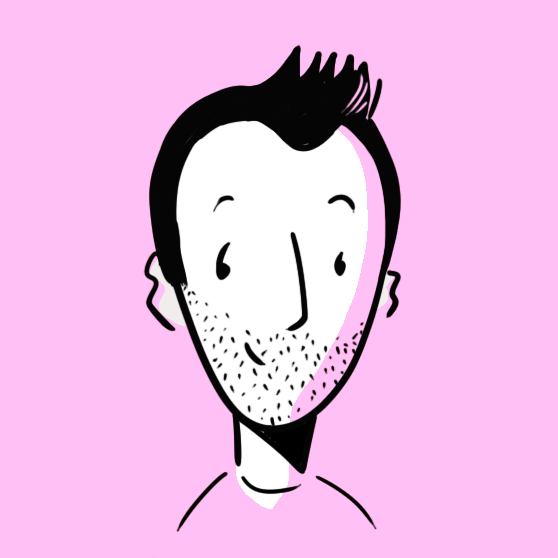Sometimes, curiosity can be overwhelming. There’s so much I want to know about. The vastness of visual art is just one of those things – to have a deeper understanding of how to work with oils or acrylics would be amazing. To make my own watercolour pigments, or craft my own paper. To work on animation cels, or have a deeper understanding of sumi-e japanese painting. To understand the art of comics and visual storytelling seems like a bottomless pit of lifelong discovery to me. It all sounds so exciting.
And, if that’s not enough, my curiosity often extends to realms beyond visual art. I’d love to understand more about contemporary dance – the language of movement. I’d love to understand plants more – their names, their structures, how they work. I’d love to understand music more – to play an instrument; cello or piano. I’d love to learn how to work with wood, or how to knit or crochet my own jumper. I’d love to learn how to fish (beyond the basics).
But with every interest comes a dilution. The constraint of our humanity – that we only have 24 hours in a day, and on average 80 years of life in the developed world – means we need to make choices. The trade off of experiecing breadth versus depth.
With anything, there is infinite depth. Enough for a lifetime of learning.
It’s difficult, no, heartbreaking, to say, “no, not in this life.”
Saying no – the idea of refusal – is often associated with loss, not opportunity. To know that, in this life, I may never know how to play cello, or knit my own jumper, fills me with a sense of ‘missing out’. What if it’s a natural talent? What if I love it more than anything I’ve experienced before? When I hear others play the cello it moves me in such a profound way that it makes me wonder, “is this my calling? My passion?”
Maybe. But also, maybe not.
Because the other question to ask is not what I lose by saying no to the cello, but what I gain from it. Because there are some things that, by now, I know I like to do. I lose myself for hours in drawing – just me, a pencil, and a piece of paper is enough for a lifetime of exploration. If I add colour to that equation (in my case, watercolour), that makes the pit even deeper because colour – the spectrum of it, the science of it, the physiological effects on the human from it – creates a fractal-like infinity of discovery and exploration that could go on forever. And to give myself the time to fully explore those paths, all I need to do is say no to an expectation of a similar depth of understanding in fishing, cello, plants, and knitting and, well, almost everything else.
How to choose when the world is so rich?
If what drives me to learn is curiosity, then saying no to some things means I don’t miss out on learning, I just learn different things. It turns out that, for me, persistence has led to a passion. And I think that’s how this passion thing works. By following a single path – let’s call the one I’ve chosen is visual storytelling – what I’ve realised is that the single path also has infinite branches just down the road – more choice than I can conceivably hold in my head at any given time. And, after a while on that path, I find myself thinking about the music and botany paths less and less and wondering more and more, what lies around the corner of the path I’ve chosen.
